Painting by Charles de Steuben, depicting the Battle of Poitiers in 732 A.D, where Charles Martel’s victory over Muslim invaders has been considered a determining moment in European history
If you wanted to launch a slimming campaign, aimed at encouraging people to lose weight, you might think you need an emblem of some sort, a figure that represents your weight-loss aims. Would you choose Father Christmas (Santa Claus, if you prefer), that jolly fat man in red who allegedly squeezes down chimneys to leave presents for children? Probably not: he’s not quite the image you’re likely to favour or to ask others to copy, surely. He’s the wrong shape. By that token, would you seek to encourage gender equality with a woman who chooses to wear a Muslim veil? Probably not, but it’s what has happened in Belgium. It may sound somewhat odd, but we’ll come back to that a little later in this article. The lady in question has not suggested that other Muslim women should cast off their veils, either, and nor has she suggested that Muslim men should start wearing them. Why ever not? Surely, she should have done one or the other? Parity, after all, must surely be the aim. There’s no doubt that Islam is the fastest-growing religion in Europe. In fact, it has so many adherents that some people are predicting that in Belgium (and not only Belgium) it could, within a human lifespan, become Europe’s dominant faith. Those who don’t share it, and who remain resolutely Christian or Jewish (or determined Atheists), fear that they and their descendants could soon be a minority, mere outsiders in a Muslim entity.
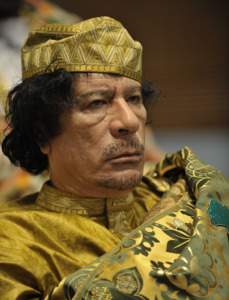
| DO AS I SAY, NOT AS I DO
Many Muslims may point out that under Shariah law, there is a religious obligation on all followers of the Prophet to grant aid and assistance to anyone seeking asylum, including Christians and Jews. As the United Nations refugee agency, the UNHCR, points out, using Islamic texts: “It is the duty of Muslims to accept and protect refugees for as long as they seek protection. In comparison to modern refugee law, hijrah offers a broader definition of a refugee, and gives individuals, rather than states, the right to determine asylum.” Hijrah, by the way, was the 7th century journey made by Mohammad and his followers from Mecca to Medina to escape persecution. Basically, it means emigrating to a land more favourable to the followers of Islam. That, of course, is all very well, but Europe’s traditional population generally don’t want to become mere visitors – or even settlers – in a land they’ve considered theirs for many, many generations. People’s perspectives about what is theirs and what they’re enjoying as little more than visitors are very different. As the Qur’an says: “Those who believe, and have emigrated, and have struggled in the way of God with their possessions and their lives are greater in degree with God; and those, they are the triumphant. Their Lord gives them good tidings of mercy from Him and beatitude; for them shall be gardens wherein is enduring bliss, therein they shall abide forever.” Not everyone in Europe thinks that’s a good idea, of course.
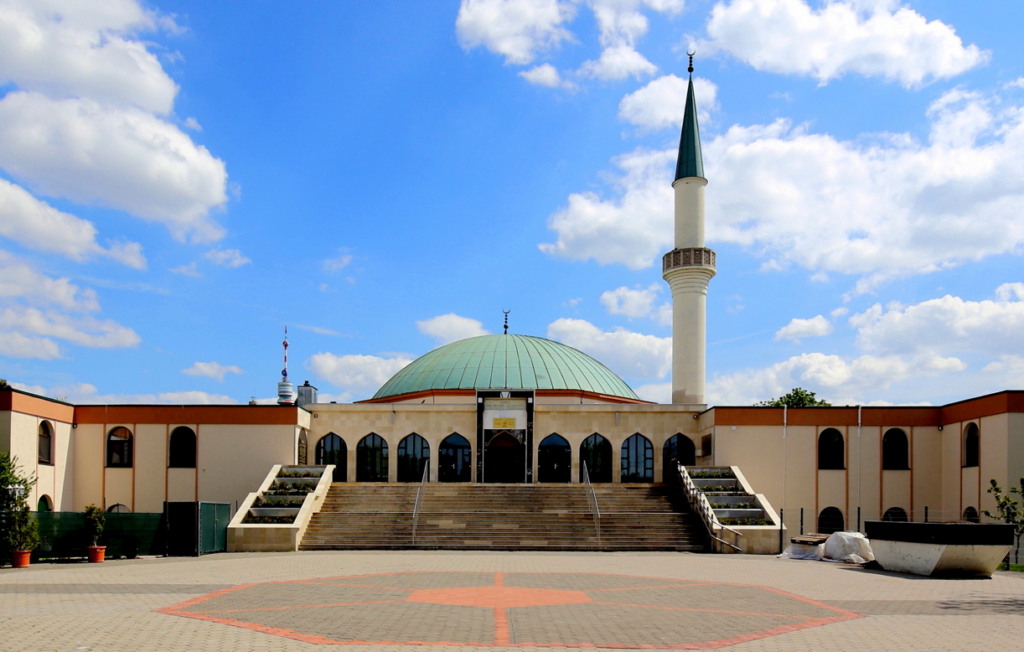
They may have a point: followers of Islam reject Western models of government and economics, expressing their distaste for both capitalism and Communism. They believe that Muslim society has been corrupted by secularism, consumerism and materialism, which perhaps explains why the more extreme Muslims believe that all women should be covered from head to toe all the time and that they should be denied any form of education. Since we now know that the theory that women stayed at home carrying out domestic chores while “man the hunter” went out to get food is just so much hogwash, so it’s very hard to justify such an attitude. Women hunted too, every bit as much as men did. They were often buried with their favourite spears. Extreme Muslims, however, especially in Iran, would deny them their well-earned place in history, even though, as Scientific American reports, “overall, females are metabolically better suited for endurance activities, whereas males excel at short, powerful burst-type activities”. And, of course, it’s endurance that counts the most when hunting large game. Perhaps ignorance is catching. As the Qur’an puts it in Chapter XVII, “The Night Journey”, “If you do good, it is your own souls you do good to, and if you do evil, it is to them likewise.” Perhaps Tehran should take note: women have a phenomenal record for brilliance, invention, research and innovation and it should not be silenced or cast aside because some ill-educated Mullah says so. But Islam does embrace some dangerously extreme views. There has been much criticism of the Russian president, Vladimir Putin, for banning the LGBTQ+ movement that supports gay people. But being homosexual results in a death sentence in a number of Islamic countries. It’s not possible to be a gay Muslim, although I’m sure there are some.
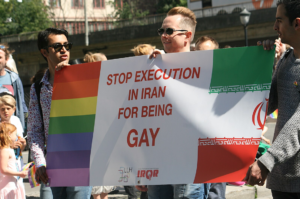
They don’t face the same difficulties under Roman Catholicism and even the Church of England recommends giving help to people who identify as LGBTQ+, although it still sees homosexuality as “incompatible with scripture”. Pope Francis recently said, in answer to a question, “Persons with homosexual tendencies are children of God. God loves them. God accompanies them … condemning a person like this is a sin. Criminalising people with homosexual tendencies is an injustice.” Most traditional Islamic leaders would disagree, it seems, which puts them in the same camp as Putin, and that can’t be a comfortable place. After all, after the Soviet forces won the Battle of Stalingrad, the Tartars, Ingushi and Azeris suffered terribly at the hands of the Red Army as it took control of the Volga and Azerbaijan regions. In 1941, some two million Ingush people – more than half the total population – were transported to Muslim territories in Soviet central Asia. Looking back, that seems an odd decision by “Comrade” Joseph Stalin.
| FAITHS COMPETE FOR FOLLOWERS
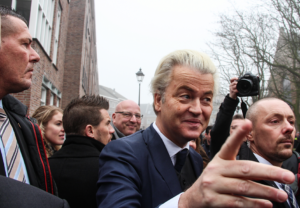
The Qur’an itself is an interesting book, rather like the Christian bible, full of parables to encourage faithful living along with strange stories, some of which may be true, even if they’ve been cleaned up to make them more palatable. It has, however, been bitterly attacked by Geert Wilders, the far-right winner of the Dutch election. He likened it to Hitler’s Nazi manifesto, but that’s a little unfair, I think. It encourages no more violence than the Christian Bible and if Wilders likens that to a Nazi propaganda book he’ll be very unpopular with the Pope. He said in one interview: “The Qur’an is the Mein Kampf of a religion that aims to eliminate others … Ban that dreadful book just as Mein Kampf is banned.” He also said: “Islam is not a religion; it’s an ideology, the ideology of a retarded culture.” A trifle harsh, perhaps? He clearly hasn’t read much of the Qur’an, most of which is pretty harmless and even uncontroversial. Much of what Wilders seems to believe would appear to be pretty harsh, in fact, with him describing the Islamic head covering as “a head rag”, which he would like to see banned as “a pollution of public space”. Wouldn’t more moderate language help his cause more? Otherwise, he might provoke violence on our streets, which most of us don’t want. More than thirty or so years ago, when I was last in Afghanistan and meeting with the Mujahideen, their womenfolk, whilst walking behind them in some cases, were surprisingly open about removing their head coverings to straighten their hair. Does that mean they’ll go to Hell? I cannot believe that; they were very charming people who seemed to get on well with one another.
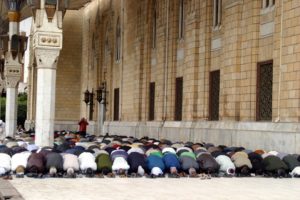
But it’s not the doctrine or belief system of Islam that scares people. It’s the way that the number of its adherents is growing so rapidly here in Europe, allowing people to predict that Muslims could soon form a majority in several EU countries, with Belgium heading the list. We should remember that the word “Islam” simply means “submission to God’s will” while “Jihad” simply means “strive”, and we non-Muslims certainly know they do. Islamic activists believe that their faith is integral to every aspect of life: prayer, fasting, politics, law, and society at large. The various conflicts in which Muslim societies have engaged, often with little choice in truth, have served to harden attitudes towards religious extremism. Most Muslims see the current resurgence of Islam as no more than a reassertion of their cultural identity, formal religious practices, family values and even morality. But where perfection lies, in the adherents’ opinion, would seem very different from the way it appears to the rest of us. And their numbers are certainly growing fast. In 2021, around 2.3-million people moved to the EU from non-EU countries, while 1.4-million moved from one member state to another. The most popular destination in both cases was Germany. At the last count, the world held 2.2-billion Christians and 1.97-billion Muslims. The Muslims, however, have a higher fertility rate, with 2.9 children for each woman, compared with just 2.6 children for Christians. According to Pew research, Islam will become the world’s dominant faith by around 2075. It could be sooner. While the fertility rate in Europe as a whole is 1.49 children per woman, it’s below the replacement level of 2.1 and as a result Europe’s population shrank by 1.1 million in 2020, although the demographics suggest that Muslim births are still on the increase. It’s been predicted that by 2085, 13 European countries will have majority Islamic populations. This is the current position, as seized upon by Geert Wilders; it is factual and it scares those who are concerned about it, perhaps enough to influence the way they vote. The Qur’an certainly makes clear that it considers Islam to be the only true faith. In the chapter called “The House of Imran”, it states plainly that: “The true religion with God is Islam.”

It also allocates the ownership of land and other property in accordance with the faithfulness of Islam’s adherents. In the same chapter, followers are urged to say: “O God, Master of the Kingdom, Thou givest the Kingdom to whom Thou wilt, and seizes the Kingdom from whom Thou wilt.” In other words, whoever owns or controls any city or country is all down to God in the end. It’s a strong point of view but bears little resemblance to Mein Kampf. We have to remember, of course, that Hitler didn’t see himself as political leader. He thought he was Germany’s Messiah.
| MURDER FOR MORALITY’S SAKE
Observers of Islamic society are deeply concerned that the war in Gaza may be radicalising some sections of it, just when things were settling down. Some Muslims praise Hamas for drawing attention to the plight of the Palestinians (an understandable concern), but others know only too well that it was their action that brought down a rain of almost biblical hellfire from Israel. Even before it happened, however, life was changing for the 400-million people of the Middle East. Back in the 1980s and 90s, Islamic organisations were participating in political life, forming parties and contesting elections. Some countries tried to stop them, accusing them of trying to “hijack democracy”. Iran and Sudan in particular, together with Taliban-led Afghanistan, stand accused of denying the rights of women and minorities. Iran’s laws enforcing the wearing of the hijab head covering by all women are especially draconian and may, in the views of some observers, ultimately lead to the current hard line leaders losing power. You may recall the massive protests that erupted over the death of Mahsa Amini in the custody of Iran’s so-called “morality police”.

It’s an odd sort of morality that turns a blind eye to judicial murder but clamps down hard on how a woman dresses. Women are still protesting at the way in which Iran only recognises men as “real” citizens, but Iran retaliated by killing 500 protestors. A great many innocent women have died for merely trying to show they exist and have views of their own. They refuse to accept the sort of rôle supposedly prescribed by society for them as obedient servants to all men. Al Islam, the Official Website of the Ahmadiyya Muslim Community, is very clear on the importance of women, quoting a very long (and largely unpunctuated) passage from the Qur’an that I shall not reproduce here. It sums up what it sees as the Islamic view of sex equality like this: “Islam confers on women all the political and social rights, which man enjoys. She is entitled to all the privileges bestowed upon man. Beside worldly matters, women are also equal to men in the spiritual sense.” Clearly Iran’s leader and his ludicrous “morality police” disagree, and the many campaigns they have witnessed demanding fairer treatment for women, as set out in the Qur’an, have been ignored or else have led to extreme violence, perpetrated by men who apparently have contempt or even hatred for women. Despite them and their thuggish brutality, a recent report suggests that around 70% of Iranian women do not abide by their government’s interpretation of hijab regulations under Islamic law,
Despite this, however, the Middle East is undergoing a kind of religious “revolution”, and the hard liners are driving some Muslims into seeking out other, more tolerant faiths. A Dutch research group have claimed that around half of those who responded to a survey admitted that they have lost or changed their religion, with fewer than a third of them identifying as Shia, the sect that rules Iran. Many had explored alternative religions, such as Zoroastrianism and Baha’i. Christianity appears to be growing in popularity, too. In other developments, Saudi Arabia no longer segregates males and females in its universities, offices and restaurants, while economic necessities, according to The Economist $
%magazine, have obliged employers to take on women to carry out traditionally male jobs, like herding livestock or driving taxis. The Economist also reports that Egypt has banned the niqab face covering in schools. The magazine suggests that the Gaza war could be “the kiss of life” for the Muslim brotherhood, by also being, of course, the kiss of death. However, it also quotes the Oxford University academic Andrew Hammond, who said: “The world is dreaming if it thinks the Islamist moment has gone.” It hasn’t, of course, but it could be subject to change, if only Islamic regimes would tackle the region’s socioeconomic ills, upon which extreme and violent Islam feeds.
| A DIFFERENT FUTURE BECKONS (OR DOES IT?)
The concern in Europe, though, is for a possible influx of large numbers of Muslims into a continent that has not hitherto been Islamic. Something similar has happened before, pre-dating Islam and other present-day faiths. It happened some 3,000 years ago, when there was a mass movement onto Europe of people of the Yamnaya culture from the forest-steppe region north of the Black Sea, many of them settling on the islands of the Aegean, where they built the first monumental palaces and urban centres and basically created the Greek civilisation. “In what amounts to one of the most comprehensive movements of people ever recorded,” writes Peter Frankopan in his fascinating and informative book, The Earth Transformed, “mitochondrial genome data shows the almost complete replacement of the gene pool of Europe.” That is not about to happen in this case, but it seems almost certain that Muslims will soon outnumber non-Muslims in Europe, whatever Mr. Wilders may say or wish. It’s been predicted that by 2085, thirteen European countries will have majority Muslim populations, with the declining fertility rate among Christian and other non-Muslim peoples contributing to the shift. Perhaps those who would like to prevent that from happening should simply have more babies. Otherwise, expect Muslims by 2085 to outnumber non-Muslims in Cyprus, Sweden, France, Greece, Belgium, Bulgaria, Italy, Luxembourg, the UK, Slovenia, Switzerland, Ireland, and Lithuania, with Belgium tipped to be the EU’s first, according to Céline Pina, writing in the monthly Causeur. Looking around at all the Christmas shops and decorations it seems hard to believe that by the end of this century Europe’s only religious festival will be Ramadan.
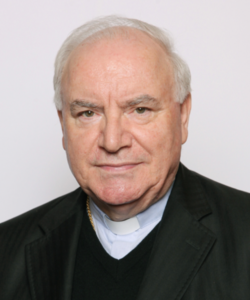
Causeur argues that the migration agreements with Morocco and Turkey, coupled with the benevolence shown towards the more radical Islamic populations, are “fuelling the political clientelism of the Left in Belgium.” As I wrote at the start of this article, Muslims already hold a number of politically influential positions, especially on the Left, and in May 2021, Belgian Green politician and State Secretary for Gender Equality, Sarah Schlitz, appointed a veiled woman as her Commissioner for Gender Equality. The woman, Ihsane Haouach, told Belgium’s Le Soir newspaper that the definition of secularism depends on demographics. “In Islamic parlance,” she said, “The Muslim Brotherhood channel, this means that when Muslims are in the majority they will be arbiters of secularism.” This sounds rather like the views of Sayyid Qutb, who has influenced the most extreme Islamic movements. More about him in a moment. In fact, people of Arab-Muslim descent are especially numerous in the area around Brussels; the numbers seem to have increased dramatically since I lived there.
It seems as if the brutal acts carried out by Hamas on 7 October are being overlooked by groups that sympathise with the Palestinians. That sympathy is understandable in as much as it’s true that Israel seized the territory, but there seems to be little evidence of a knowledge of history among those who demonstrate on the side of Hamas. Britain’s then Home Secretary, Suella Braverman, called the protest demonstration in London a “hate march” and was heavily criticised for doing so, but she had a point.
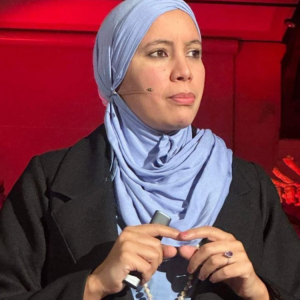
One Labour party activist had devised a placard that intertwined the Star of David with a swastika. Clearly they had never visited Auschwitz. They should, and very soon. A senior German politician who was with our party was reduced to tears by what he saw there. Hitler was a terrible human being, but the unspeakable horrors of Auschwitz were largely perpetrated by ordinary people. The place is indescribably horrible and if I was inclined to believe in the supernatural (I’m not) I would say that the place is imbued with the darkest possible evil. The place’s nearest town is Oświęcim, but our group of official visitors were entertained after our visit in Krakow, some 60 kilometres west of the death camp. We were offered Polish vodka, which is very good, but we wouldn’t have noticed if it been methylated spirits, such is the effect of a visit to Auschwitz. Likening Israel to Hitler’s nightmare world is grossly inappropriate and an obscene lie. Even so, supporters of Hamas trot out their anti-capitalist and anti-Western slogans as if they are more than a simple expression of hatred and intolerance. Perhaps Hitler would have understood them; they would sing from the same song sheet, after all. Labour party officials later dismissed the anti-Semitic slogans on some placards as the work of “an extremist fringe”. It’s true, however, that “Islamist narratives” tend to intersect neatly with some far left-wing views, even if some of the slogans they shout sound as if they came from the 1970s. Their numbers are growing, too. Indeed, they’re inclined to conflate anti-Muslim hatred with any sort of criticism of Islam or its followers. It licenses them to hate virtually everybody who doesn’t share their extreme views.

All Muslim fundamentalist movements have been deeply influenced by Sayyid Qutb, who was executed on the orders of the former president of Egypt, Gamal al-Nasser, in 1966. Qutb had argued that tolerance of other beliefs could only come after Islam had triumphed, and it hasn’t. Not yet, anyway, although it’s certainly advancing in Belgium and other European countries. As a result, left-wingers use the freedom of expression inherent in modern Western thinking to support such extremists as the late Osama bin Laden, who urged military jihad against what he used to call the “Zionist Crusader Axis of Evil”, which calls for the West’s destruction. Using freedom to call for an end to freedom seems rather pointless and self-destructive to me. Sayyid Qutb would never have allowed it if the positions had been reversed.

